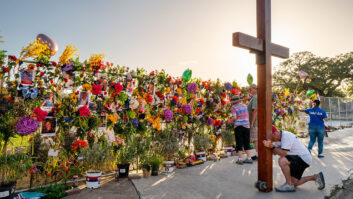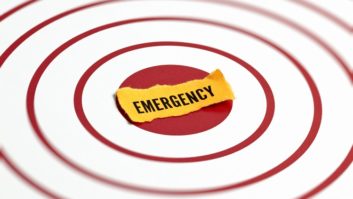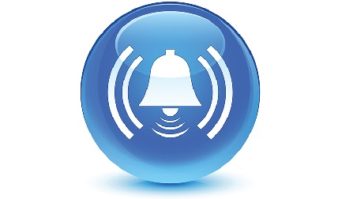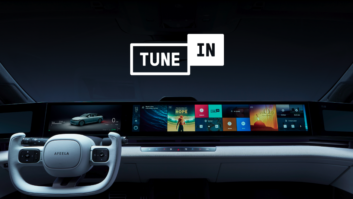The author of this commentary is manager of communications and outreach for NPR Distribution.
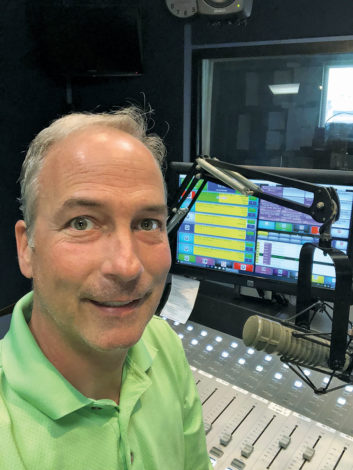
Over the past few years, disastrous storms and wildfires have crippled public radio stations and taken them off the air in New Jersey, Puerto Rico, California and many other locations. At the same time, the forthcoming FCC repack and the constant threat of obtrusive construction projects leave many stations fearful that events beyond their control could impact and disrupt their broadcasts.
Fortunately, NPR Distribution, which manages the Public Radio Satellite System (PRSS), has created a solution to help stations plan ahead and protect themselves and their broadcast operations.
The PRSS Station Emergency Kit is a suite of emergency backup transmitter kits and portable studio systems that can be used by public radio stations in the event their on-air operations are disrupted by natural disasters, construction activities or other potential threats. The emergency kits are the product of a collaboration with the Corporation for Public Broadcasting (CPB), which provided the necessary funding, and comprise emergency transmitter, antenna and studio kits.
“One of our mandates is to deliver best-in-class technologies, business practices and support to help public radio stations reach their audiences, and these emergency kits are a unique and important way to provide assistance when it’s needed most,” said Michael Beach, vice president of NPR Distribution. “Station managers do themselves a favor when they plan in advance for technical contingencies, and we’re happy to offer another tool they can rely on in the event of a disaster or if they see one looming on the horizon.”
MODEST FEE
With funding from the CPB, NPR Distribution created, assembled and tested the kits with an eye toward making them available for a modest fee to stations on a temporary basis until their broadcast infrastructure is restored. The transmitter kit costs $275 for the first month and $550 for each subsequent month. The antenna kit fees are $100/$200 and the studio kit fees are $200/$400. Stations cover shipping.
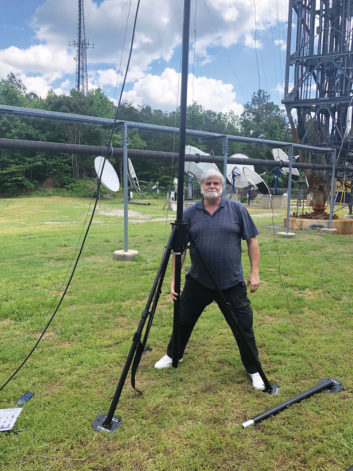
NPR Distribution, which kicked off the project by developing three emergency transmitter and antenna kits and two emergency studio kits, will also be in charge of shipping the kits out to stations that submit a request and to maintaining them when they have been sent back.
A key component of the kits’ development involved field testing the kits at two stations in Virginia, namely WVTF in Roanoke and WCVE in Richmond.
“We made certain the stereo pilot worked, we accessed the transmitter remotely via the internet and then drove within a few miles of the site to evaluate coverage, which we found to be about four to six miles,” said Mike Friedman, RF engineer for WCVE, which is owned by VPM.
“The antenna is very simple to assemble. For the mast assembly, you will find everything you need, and the entire process probably took us a total of 30 minutes to erect.”
Friedman added that one person could set up each of the kits, though he said it eases the situation considerably to have a colleague help, particularly with the 30-foot antenna mast.
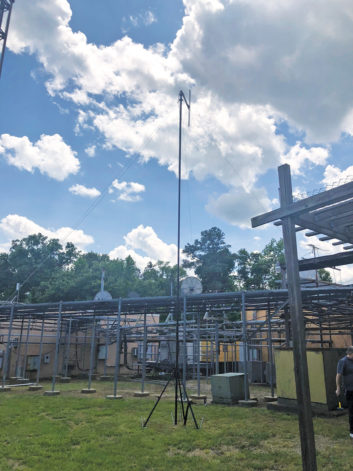
Asked if the kits as tested would provide a viable alternative if his station went off the air, Friedman replied, “Absolutely. It’s wonderful for NPR Distribution to offer an emergency broadcast alternative so that we can continue to serve our communities. In the event of a disaster at your transmitter site, you have to do what it takes to get back on the air. NPR is providing a bundled solution and the only question is what exactly do you need, given your situation.”
According to NPR Distribution’s policies on the kits, stations desiring to use a kit must contact the PRSS Help Desk with the dates needed, whether the need is immediate or one planned for several months in the future. They will have the option to use the kits for up to 90 days and may renew the contract if needed. Stations will be required to contact NPR Distribution, before the date when they originally agreed to return the kits, if they wish to extend the duration of their contract for the kits.
NPR Distribution has been striving to anticipate and address challenges faced by public radio stations before they occur. This is evident in its Public Radio Engineering Certification initiative, which seeks to help create the next generation of technical leaders in the industry, as well as the Future System initiative and its emphasis on a next-generation hybrid system of satellite and terrestrial content distribution.
More information on the station emergency kits, including pricing and how to order them, is available via NPR Distribution.
WHAT’S IN THE KITS
Emergency Transmitter Kit
Three emergency transmitter kits will be available. Each transmitter is air-cooled and runs on 120-volt, 60 Hz AC power using local power or a generator. Each kit will consist of the following:
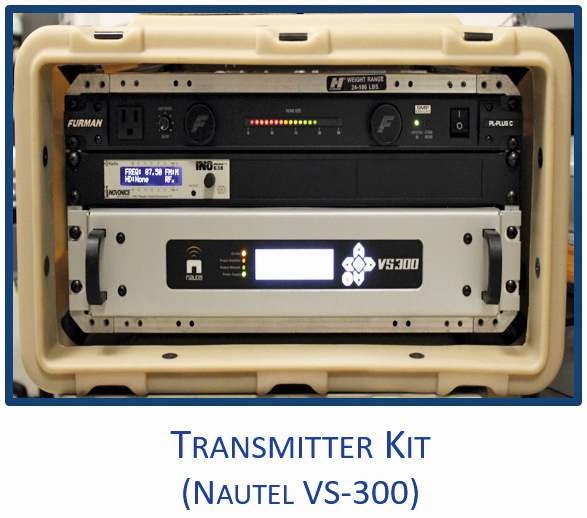
● One Nautel NHB-VS300 300-watt FM transmitter with internal frequency agile exciter, which supports 87.5 to 108 MHz and integrated audio processor
● One INOmini 638 FM receiver for “off-air” monitoring with level meters
● One Furman Power Conditioner PL-Plus-C
● One 12’ N-N jumper cable
● Two 25’ Ethernet cables
● Three 30’ XLR cables
● One Pelican heavy-duty rack case
In addition, by request NPR Distribution can also provide a 1-5/8” to N adaptor or a 3-1/8” to N adaptor for connecting into an existing line and antenna
Emergency Antenna Kit
Three antenna kits will be available to the system that consist of:
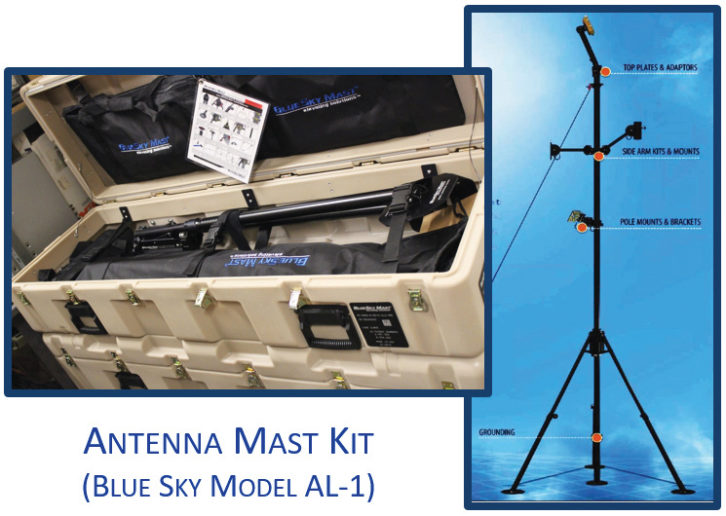
● One Allen Dick Band II Broadband FM antenna
● One 75’ flexible transmission line
● One 30’ portable BlueSky mast with guy ropes
Emergency Studio Kit
Two emergency studio kits have also been developed, with each containing the following:
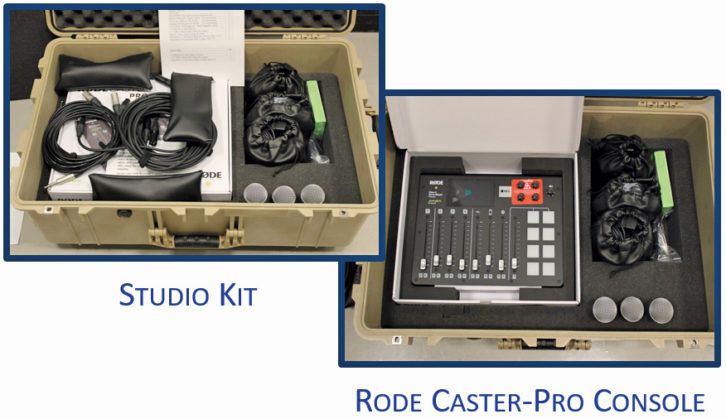
● One RODECaster Pro audio mixer and recorder
● Three Shure SM58S dynamic microphones
● Three Shure desktop microphone stands
● Three pairs of Audio-Technica ATHMx-40 headphones
● All necessary cables and adaptors
● Pelican road case with foam insert


